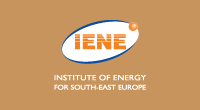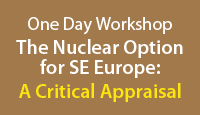

The Nuclear Remains an Option
19-05-2009
The pros and cons of nuclear energy took centrestage during the first ever event of the Athens-based Institute for Energy in South East Europe (IENE) at the Sheraton Hotel in Sofia, Bulgaria, today, May the 19th. The workshop entitled "The Nuclear Option for SE Europe: A Critical Appraisal" gathered stakeholder s from Bulgaria, Greece and Romania to delineate where nuclear energy stands in the region.
Participants considered its chances for a larger share in the Balkan energy mix and the technical condition of existing power generating capacities; broached the role of nuclear energy for energy security and voiced safety concerns; informed about public sentiment on nuclear energy in individual EU countries, as well as updated the audience about regulatory frameworks nuclear energy obeys.
The workshop served as an information-gathering tool for IENE. Insight on nuclear energy is intended to enter the "South East Europe Energy Outlook", an IENE study slated to cover all aspects of the energy mix and serve as a reference for energy actors in the South East European region. The document is due in October 2009.
Greece and Bulgaria and Romania, respectively, stand on opposite sides of the nuclear energy dialogue, the workshop confirmed. While Greece - authorities, parties and the public alike - remains a firm opponent of the nuclear option, Bulgaria and Romania are adamant on backing the reverse. Both countries, the nuclear strongholds on the Balkans, plan to expand their nuclear power capacities deeming this type of energy cheap and environmentally friendly. Turkey and Albania (jointly with Croatia) are intent on joining the nuclear club.
The workshop had its breaking news as well. Kozloduy might have a new unit, said Rasho Purvanov, Operations Manager at Kozloduy nuclear power plant. The idea is yet to cloak with action and garner investor interest. Yet technically speaking the project is feasible, the site has all the preconditions to host it. In view of already available infrastructure, it would cost twice as cheap compared to a unit on a new site, he said.
The workshop was held under the auspices of the Bulgarian Ministry of Foreign Affairs and the Ministry of Economy and Energy.

